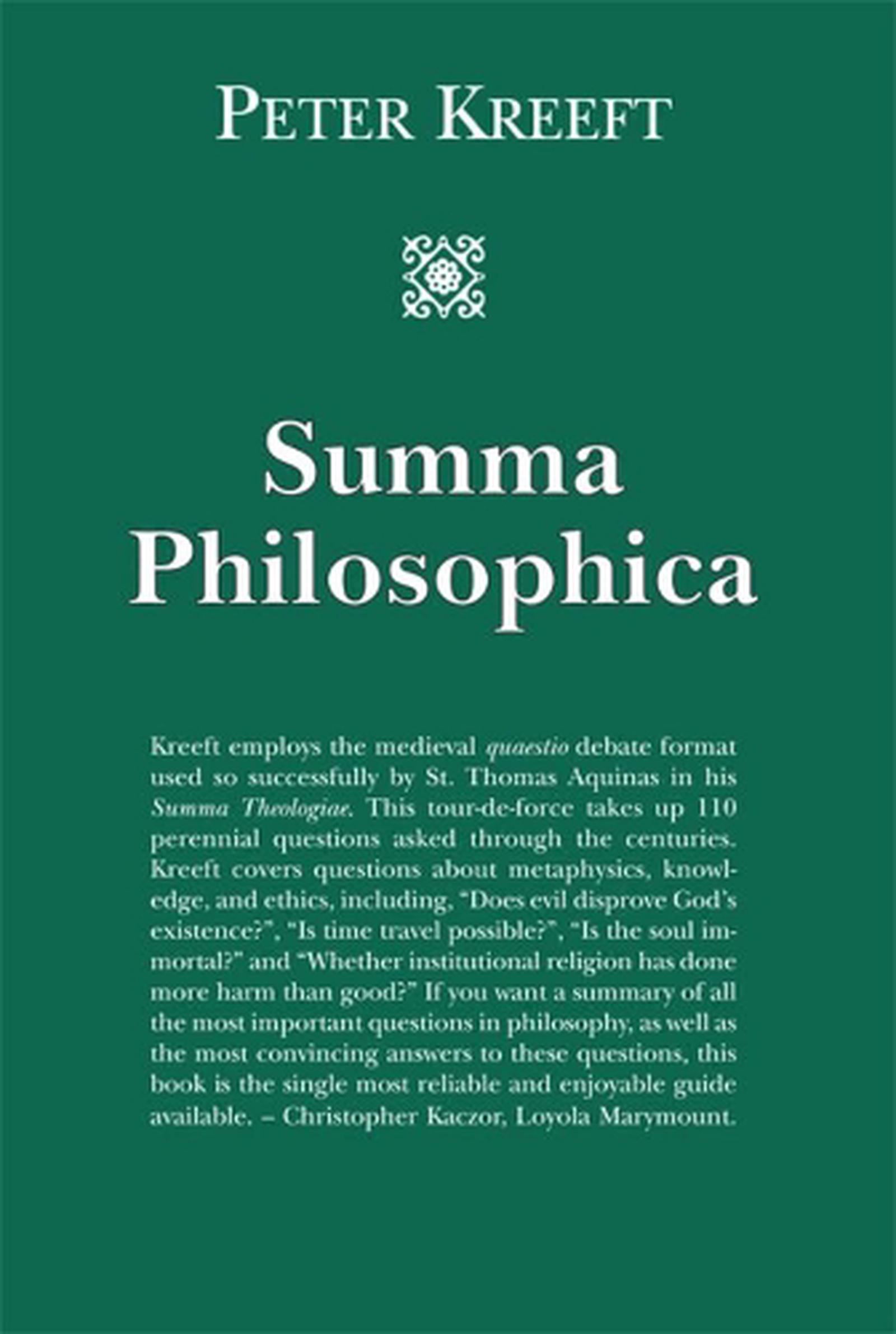Summa Philosophica
,gravity=Center,allowExpansion)
Collect 38 Everyday Rewards points
,gravity=Center,allowExpansion)
Collect 38 Everyday Rewards points
Next to the Socratic Method, the best method for organizing a logical debate over a controversial philosophical or theological issue is the method St. Thomas Aquinas uses in the Summa Theologiae. As the charm of the Socratic dialogue is its dramatic length, its uncertainty, and the psychological dimension of a clash between live characters, so the charm of the Summa method is the opposite: its condensation and its impersonality, objectivity, simplicity, directness, and logical clarity. Beginning philosophy students pick up both methods very quickly, and write adept imitations of them. It’s both profitable and fun to do it. Yet professionally philosophers have not followed these tried-and-true roads. Why not? Probably it is pride, the refusal to stoop to conquer, the confusion of “stooped” with “stupid.”
Peter Kreeft has written over a dozen books of Socratic dialogues, and readers like them – they like the form, or format, irrespective of the content. There is no reason that the Summa format cannot produce the same results. It is a very simple five-step procedure: (1) the formulation of the question; (2) the opponent’s leading objections to your answer or thesis, formulated as clearly and fairly and strongly as possible; (3) a short argument from some recognized past authority for your thesis; (4) your own longer, original argument; and (5) a refutation of each objection, “deconstructing” it and showing how and where it went wrong . . . all in one or two pages, severely condensed, clear and simple (and therefore usually in syllogisms, the clearest and simplest and most direct form of logical argument).
Kreeft has taken 110 of the most important and most often argued-about questions in each major division of philosophy and applied this method to it. The answers usually match common sense (and therefore Aristotle’s philosophy and Aquinas’s theology). At the very least, this is a useful philosophical reference book for arguments; not necessarily the elaborate and artificial arguments that might occur to contemporary “analytic” philosophers, but the arguments ordinary people would give, and still give on both sides of these great questions. Why no one has written such a book before is mind-boggling. We fully expect that many readers of this book will imitate it, as Kreeft has imitated Aquinas. This book is pregnant with many children.
We provide shipping to most Australian addresses (excluding some areas outside of our courier's delivery zone).
We use a combination of Australia Post, Aramex and Direct Freight Express to get your order to you.
For an accurate shipping cost, add the items you want to your cart and enter your shipping area.
Orders of multiple items may come in separate parcels.
All returns must be started within 30 days of delivery. We kindly request that you don’t try to return the item without letting us know as every situation can be resolved differently.
Sometimes items are damaged during delivery, or have manufacturing defects. If this is the case or you have received an incorrect item, get in touch with us as soon as possible and we will do our best to fix as soon as we know. Visit our contact page to send a query.
Change of mind returns are accepted within 30 days of delivery for most items in resellable and unopened condition. Most items are eligible for free returns however each item in your order may have a different return policy. Some items cannot be returned due to change of mind.
To check the return policy for your item look on each item page for the returns section. Please note that the few items that are not eligible for free returns may incur a re-stocking fee in addition to having to pay for shipping to return the item.
SKU: 9781587318252
Estimated Delivery Time Frame:5-10 business days
Ask a Question About This Product
Reference ID: 15023400